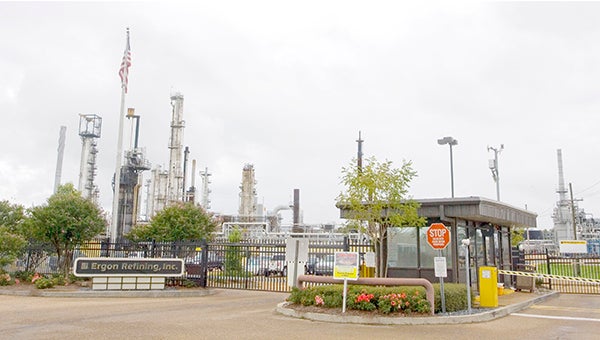Ergon, Gavilon to partner on ethanol plant duties
Published 9:25 am Monday, March 16, 2015
Ethanol production at the Port of Vicksburg will have a new partner when it’s expected to restart in May.
Gavilon, which operates a fertilizer plant at the port, and Ergon BioFuels announced late last week an agreement for the Omaha, Neb.-based feedstock supplier to originate and market grain at Ergon’s facility, at 1833 Haining Road. The plant closed in December 2012 after four years of production. Gavilon operates a fertilizer plant farther east along the port’s main access road, at 461 Haining Road.
Terms of what the companies called a comprehensive service arrangement also call for Gavilon to operate the 3.2-million bushel warehouse at the biofuel facility and begin buying crops such as corn, soybeans milo and soft red wheat from area producers, according to a news release from Ergon BioFuels. Gavilon will supply feedstock and market dried and wet distillers’ grain and corn distillers’ condensed solubles, while Ergon will own and operate the ethanol plant and market the biofuel and corn oil made there.
“We are thrilled to work with Gavilon as we bring our ethanol facility back online,” said Craig Busbea, general manager at Ergon BioFuels, in a statement. “The economic gains of this agreement will be a boon to our companies, the city of Vicksburg and the state of Mississippi.”
Production was stopped amid high prices for corn the company said made the ethanol plant less profitable. In 2014, Ergon bought out the interests in the plant of its partner, Bunge North America, and pledged the plant would reopen by May 2015 and hire 30 people.
Corn oil production, used to make biodiesel and ethanol, will be enabled by upgrades to the plant.
“We look forward to working hard to earn the trust of area producers to meet the new demand of the ethanol plant and markets accessible through the Gavilon network,” said Chris Faust, regional vice president of North American Grain at Gavilon. “The proximity of the Vicksburg facility to our Rosedale operation will also create additional opportunities for producers as we are able to source and price grain more competitively than ever before.”
Before the 2012 closure, the plant had an annual capacity of about 60 million gallons.






